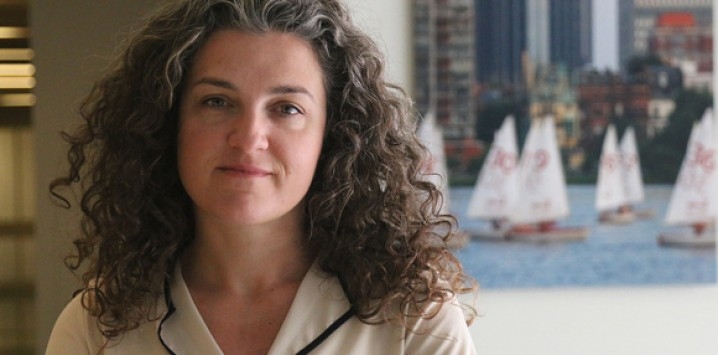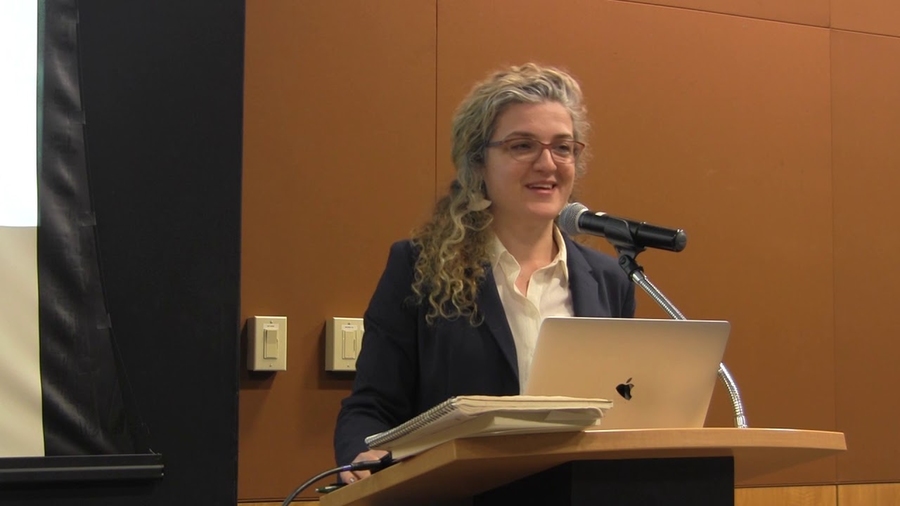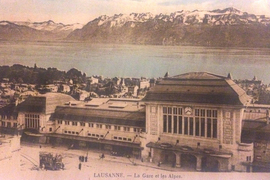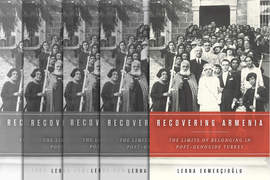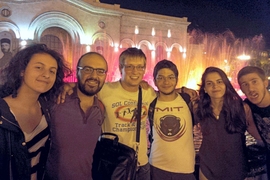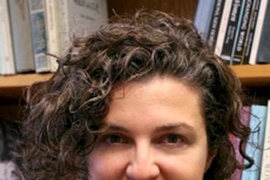There’s a black-and-white photo from a 1920s beauty pageant in a gilt frame hanging above the desk in MIT Professor Lerna Ekmekcioglu’s office. The Jazz Age image features white flapper girls in white dresses. There’s an unsettling commonality among the women in the photo.
“I found this at a garage sale,” Ekmekcioglu recalls, “and thought it neatly encapsulated my evolving view of feminist thought, at least for me.”
Across the office, leaning on a wall near the entrance, is a piece of white backing board on which are pasted a series of images. The highly influential feminist publication and women’s journal, “Hay Gin,” and its founder and editor, Hayganush Mark, are at the collage’s core, surrounded by images of socially marginalized women.
The social and political distance between those pictures is part of a fascinating journey for Ekmekcioglu and her research into a feminism that centers both her Turkish-Armenian heritage and underrepresented women across the globe.
On investigating identity at the sociopolitical margins
Today, Ekmekcioglu, MIT’s McMillan-Stewart Associate Professor of History, the director of MIT’s Program in Women’s and Gender Studies, and a professor since 2011, credits a focus on the work of leading feminists like bell hooks, her investigation of Turkish-Armenian feminism’s foundation, connections between those feminists, and scholarship among other members of underserved populations for her continuing education.
“There’s a shared set of experiences among groups of people with dark pasts,” she asserts. “What happens to marginalized groups within marginalized groups?”
What happens, Ekmekcioglu says, is these people live with multiple dilemmas: opposition to patriarchy and inequality while also committed to their “grouphood,” the shared experiences. “Grouphood relies on traditions, and many traditions are patriarchal and ascribe only a certain, limited set of rights and responsibilities to women,” she continues.
On barriers to inclusion
Ekmekcioglu’s work derives, in part, from a desire to understand the sociopolitical support for marginalization across some cultures and, more broadly, to understand the world around her.
“I wanted to understand the history of people like me,” she says.
These people, she notes, are Indigenous feminists and others whose identities are rooted in systems that prioritize patriarchy. These identities, she notes, are historically difficult for women to occupy. In an age of “Me Too,” her work connects these research threads into a vast and colorful tapestry spanning many years. Distinct communities like feminists, she notes, have their roots in nationalism.
“Feminism is a derivative of nationalism,” Ekmekcioglu continues.
There’s a through line Ekmekcioglu traces from the intersection of the multiple identities women occupy to the calls for restorative justice roiling several of the world’s underserved communities.
On building alliances and investigating solutions
When asked about how to overcome the challenges feminists face, Ekmekcioglu recommends ongoing study.
“The barriers persist,” she says, “but I think it helps to develop scholarship, create awareness, and make alliances among people doing this work.”
Ekmekcioglu also notes that people holding tightly to power is historically part of the human condition. The community of scholars that have risen from marginalized communities continues the work of shrinking the distance between the 1920s flapper girl beauty contestants and her inclusive brand of Turkish-Armenian feminism.
